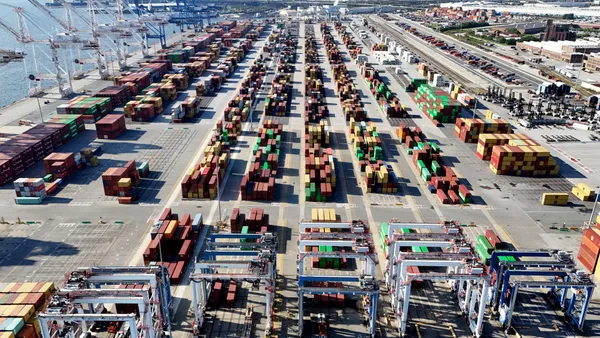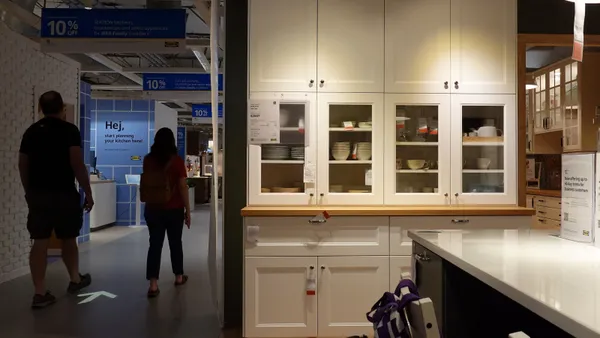Dive Brief:
- Between January and June of 2017, 26 newly built ships of 14,000 TEU-plus were delivered, most of which will ultimately be deployed on the busy Asia and Europe route, The Loadstar reported. This means at least one new ultra-large vessel will be delivered per week before the start of the industry's usual October slack.
- While analysts at Alphaliner are optimistic due to the idle fleet chart — currently at its lowest level in two years — they report that as of late July, only seven 5,100-7,499 TEU ships were open for charter, plus seven vessels of 7,500-11,999 TEU available, and just one ship over 12,000 TEU ready for repair.
- Though numbers are currently strong, the arrival of more than 700,000 teu new capacity vessels could send supply sky-high, easily reaching one million teu again by year's end.
Dive Insight:
Success that comes after hard times often leads to quandaries: does everything that was done in the past need to change, or can the model return to what it looked like in previous prosperity? That dilemma is currently befalling the shipping industry, which appears to be stocking up on vessels again while simultaneously limiting scrapping. Is it heading for another bout of over-capacity, or has demand substantively risen to justify it?
Within this first half of 2017, the industry has seen steady volumes and regular, if rising, rates. Disruptions have been more threat than reality, especially from new alliances, port strikes, or other unusual situations, such as the Notpetya virus. Some industry analysts even predict a profit of $5 billion or more in 2017, coincidentally close to the amount lost just one year ago. Yet, a strong recovery means shippers must prepare for a sellers' market, since after disaster comes a rally, which in this case means that carriers and rates will be on the upswing while shippers will have to adjust to rising prices.
Still, carriers must act to preserve their hard-earned recovery, and better capacity management is in the middle of it. The industry already knows that too much supply doesn't succeed — hopefully that lesson won't be forgotten too soon.












